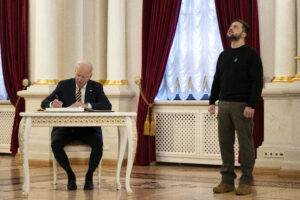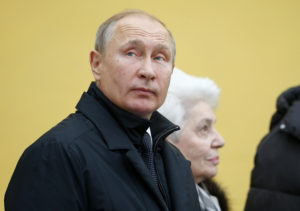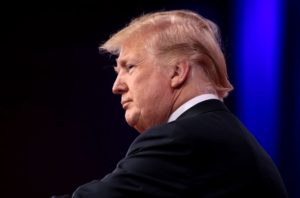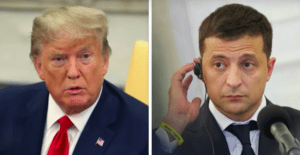European Allies Are Declaring Their Independence from Irresponsible U.S.
Britain, Germany and France are all posting signs of dissent in the West. Rock Cohen (CC BY-NC-SA 2.0)
Rock Cohen (CC BY-NC-SA 2.0)
PARIS — Britain, Germany and France are all posting signs of dissent in the West. Last week Barack Obama’s White House found two good reasons to angrily criticize the British government, its most faithful and docile ally and client in the post-World War II period. This was perceived by some in the press as evidence of the weakening of that “special relationship” that has prevailed throughout the 20th century.
The United States has always found this relationship flattering, convenient and inexpensive, as it was paying next to nothing for services rendered, including Britain’s being first in line to dispatch solders on missions primarily of interest to Washington. The exception was Vietnam, when Lyndon Johnson begged in vain for London to commit as little as “a damned company of the Black Watch” so as to cause the war to seem an international crusade of democracies against communism. The British sensibly said no.
The poodle has recently taken to biting its master, a bad sign despite the London press’ habitual assertion that the United States is “the UK’s most important strategic partner,” as Whitehall also is wont to put it.
Master bit back when last week a White House official deplored London’s “constant accommodation of China,” something that has been going on since 2013 when Britain began cultivating Chinese trade and investment. The remark was occasioned by Britain’s decision to join the Chinese-sponsored Asian Infrastructure Investment Bank, a potential rival to the international financial institutions Washington controls, such as the World Bank and the IMF. U.S. allies are expected not to stray, but they definitely are doing so. Germany, Italy and France have just announced that they too will join the Chinese AIIB.
Britain — together with nearly all the other major European NATO members except Poland — has also recently been reproved by Washington for failing to spend more than 2 percent of GDP on defense. How can NATO frighten Russian President Vladimir Putin into liberating Crimea and eastern Ukraine if it only spends 2 percent of GDP on its armies and navies?
Britain is not the only official NATO member whose military outlines, once robust, are fading, like those of the Cheshire Cat. Germany, for historical reasons, reserves its military mostly for humanitarian or peacekeeping missions.
Germany for the same reasons until fairly recently practiced a reserved diplomacy, in simple support of the Western Alliance — meaning the U.S. But under Chancellor Angela Merkel it has recently, because of her East German past and mastery of Russian (and Putin’s of the German language), assumed not only an important economic leadership position in the European Union but has taken the European initiative in dealings with Russia and its president.
Merkel’s relations with Washington (and those of Germany’s leadership as a whole) have plummeted since the revelation of the American National Security Agency’s comprehensive interception of her and her government’s communications, including those conducted on her personal telephone. This was considered a form of treachery and potential blackmail, even though President Barack Obama and his government tut-tutted that this sort of thing was normal in relations among allies (as it is, on the U.S. side) and that Merkel was not being a worldly stateswoman and a good sport.
Then came the U.S.-backed coup d’etat in Kiev with numerous killings and then President Putin’s Crimea revenge, and a bloody little war in eastern Ukraine that produced more than 3,000 casualties and ruthless civilian damage.
Faced with White House fury and (according to German reports) threats, and with untrustworthy propaganda both domestic and international coming from the Pentagon and NATO and the baying Republican hounds in Congress demanding new arms shipments for Ukraine and escalation of the fighting, Merkel collected France’s President Hollande and was off to Minsk to see Putin and establish a thus-far successful truce.
There is new Middle Eastern dissent in France as well. Foreign Minister Laurent Fabius has just angrily announced that France rejects Secretary of State John Kerry’s suggestion on Sunday that relations might be reopened by the West with the Assad government in Damascus.
All this manifestly reveals bad and worsening transatlantic relations as well as bad relations between Russia and the U.S., and between Europe and both the U.S. — seeming instigator of the crisis — and Putin, toward whom there seems to be in Western and Eastern Europe a mixture of guarded respect mixed with real, if uncertain, fear.
The least that can be said is that U.S. relations with the West Europeans are worse than they have been in some years. The new jihadism, the chaos in Iraq, Syria and Libya, the newly proclaimed Islamic State, tension with Iran, and the sinister turn events have taken in Israel/Palestine are all widely attributed in Europe to American irresponsibility and adventurism. The time has perhaps come for Washington to consider that Europe might declare its independence. The idea can be heard on the continent.
Visit William Pfaff’s Web site for more on his latest book, “The Irony of Manifest Destiny: The Tragedy of America’s Foreign Policy” (Walker & Co., $25), at www.williampfaff.com.
© 2015 Tribune Media Services, Inc.
Your support matters…Independent journalism is under threat and overshadowed by heavily funded mainstream media.
You can help level the playing field. Become a member.
Your tax-deductible contribution keeps us digging beneath the headlines to give you thought-provoking, investigative reporting and analysis that unearths what's really happening- without compromise.
Give today to support our courageous, independent journalists.







You need to be a supporter to comment.
There are currently no responses to this article.
Be the first to respond.